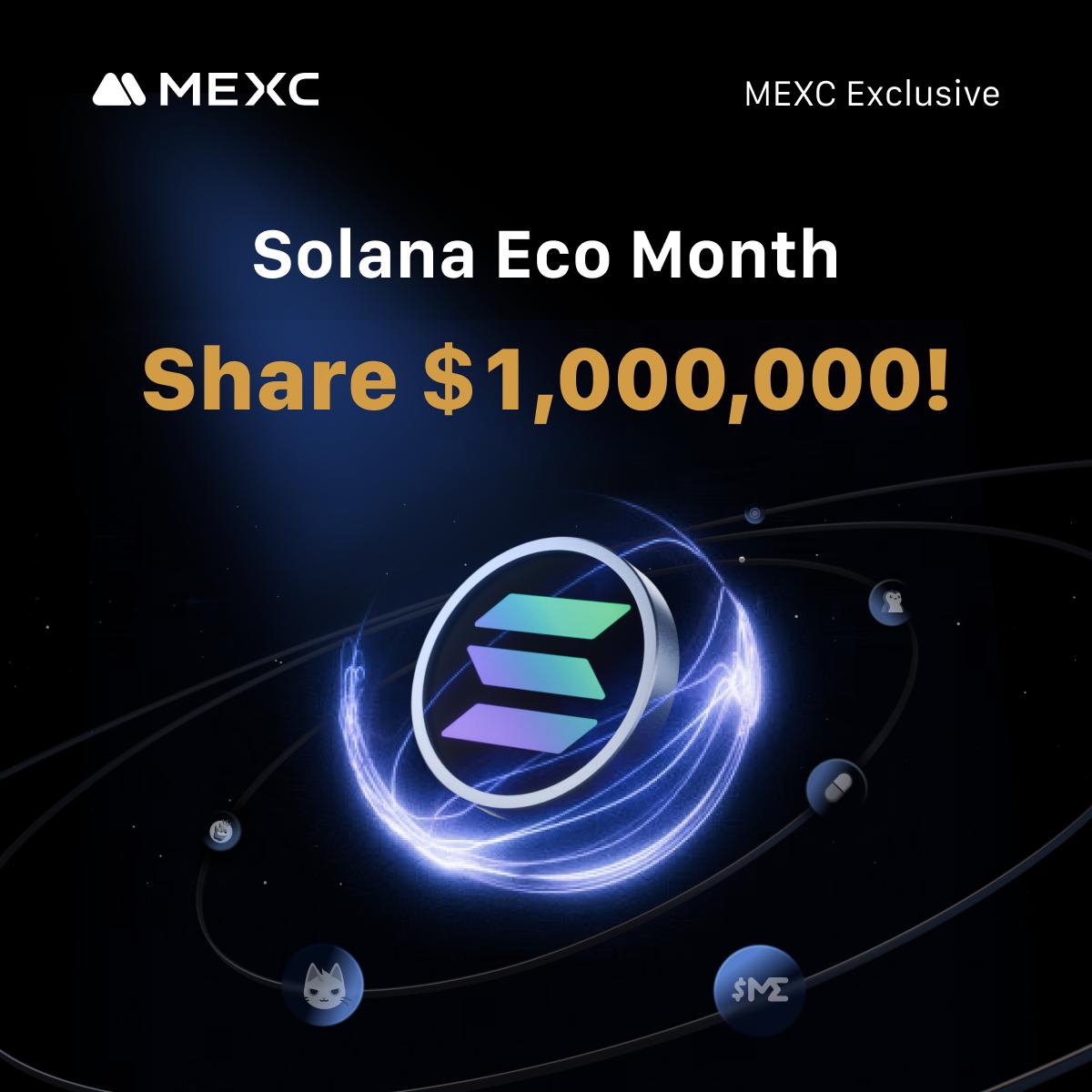
6 minute read
MEXC vs Exness Comparison: Which is better?
from MEXC
by Exness_India
When it comes to choosing the right trading platform, the decision often boils down to your trading goals. If you're deciding between MEXC and Exness, the key difference lies in their focus: MEXC is a crypto-centric exchange, while Exness specializes in forex and CFD trading. So, which one is better?
The answer depends on what you want to trade. If you're focused on cryptocurrency trading, MEXC offers a more robust and diversified experience. But if you're into forex, indices, or commodities with tight spreads and high leverage, Exness is the more suitable option.
Let’s dive deeper into what each platform offers, where they excel, and who they are best suited for.
✅ Trade with MEXC now: Open An Account 👈
💥 Trade with Exness now: Open An Account or Visit Brokers 🏆
1. Core Offering and Market Focus
MEXC is a global cryptocurrency exchange founded in 2018. It offers spot trading, futures, margin, staking, and launchpad features. MEXC is known for its massive selection of altcoins, often listing tokens before they appear on larger exchanges. With over 1,600 trading pairs and a strong DeFi and GameFi presence, MEXC caters heavily to crypto investors and traders looking to explore emerging blockchain assets.
Exness, on the other hand, is a long-established forex broker that began operations in 2008. It specializes in forex trading and offers CFDs on indices, commodities, stocks, and cryptocurrencies. However, crypto trading is not its core strength. Instead, Exness is recognized for ultra-low spreads, zero commission accounts, and very high leverage—especially appealing to professional forex traders.
Verdict: MEXC wins for crypto traders; Exness is the better choice for forex and traditional markets.
2. Regulation and Security
Exness is highly regulated. It holds licenses from top-tier regulators including the FCA (UK), CySEC (Cyprus), and FSCA (South Africa). This regulation offers strong client protection, transparency, and operational trust. Exness also follows segregated fund practices, ensuring client funds are kept separate from the company’s operating accounts.
MEXC, while operating globally, is not regulated by any top-tier financial authority. It has a Seychelles license but lacks oversight from entities like the SEC, FCA, or ASIC. However, it has maintained a relatively clean record in terms of hacks or major outages, and its cold wallet storage and risk management systems are considered competent for a crypto-native platform.
Verdict: Exness offers stronger regulatory protection, making it a safer bet for risk-conscious traders.
3. Trading Products and Instruments
MEXC provides an incredibly wide variety of cryptocurrencies. From Bitcoin and Ethereum to obscure meme coins and DeFi tokens, it's one of the few platforms where early-stage coins are listed regularly. It supports spot, margin, and futures trading, as well as staking, copy trading, and IDO participation via its Launchpad.
Exness focuses on forex pairs, with majors, minors, and exotics available. Additionally, traders can access CFDs on indices (like S&P 500, FTSE), commodities (gold, oil), and some cryptocurrencies. However, crypto pairs are very limited, and trading them on weekends is often restricted.
Verdict: MEXC is better for crypto diversity and innovation; Exness is ideal for forex and CFD traders.

✅ Trade with MEXC now: Open An Account 👈
4. Trading Experience and User Interface
MEXC offers a sleek and responsive interface for both desktop and mobile users. The trading view is customizable, with multiple indicators, order types, and trading pairs easily accessible. MEXC also supports grid trading bots, copy trading, and trading competitions that make the experience engaging for seasoned traders.
Exness delivers a more traditional experience with access via MetaTrader 4 and MetaTrader 5—industry-standard platforms for forex traders. These platforms are powerful, customizable, and allow for automated trading via Expert Advisors (EAs). The Exness client area is simple, but efficient and professional.
Verdict: MEXC has a modern UI optimized for crypto traders, while Exness provides the classic MT4/MT5 environment favored by forex professionals.
5. Fees and Spreads
MEXC charges a 0.1% maker and taker fee on spot markets, with lower rates for high-volume traders and holders of MX tokens. Futures fees are competitively low, and there's a strong incentive for liquidity providers. Deposit is free for crypto, but withdrawal fees depend on network congestion and token type.
Exness offers ultra-tight spreads, often as low as 0.0 pips on major pairs, especially in its Raw Spread accounts. It also has commission-free standard accounts, making it one of the most cost-effective brokers in forex. Deposits and withdrawals are usually free, with fast processing times.
Verdict: Exness is better for low-cost forex trading. MEXC’s fees are fair, but blockchain withdrawal fees can add up.

💥 Trade with Exness now: Open An Account or Visit Brokers 🏆
6. Leverage Options
MEXC offers leverage up to 200x on futures trading, depending on the token and market volatility. However, high leverage is risky and mostly used by short-term speculative traders.
Exness offers variable leverage—sometimes unlimited (for pro accounts), depending on the instrument and the trader’s balance. For major forex pairs, it can go as high as 1:2000 or more. This allows skilled traders to maximize small price movements efficiently.
Verdict: Exness dominates in leverage for forex. MEXC’s leverage is high but only applies to crypto markets.
7. Customer Support and Community
MEXC provides 24/7 multilingual support via live chat and ticketing. Its response times are decent, and the platform has a growing community across Telegram, Twitter, and Discord, especially among Asian and European users.
Exness also offers 24/7 live chat and email support, with strong service in multiple languages. Its user base is global but has particularly strong adoption in Southeast Asia, Africa, and the Middle East.
Verdict: Both platforms offer excellent support, but Exness gets the edge for professionalism and multilingual support quality.
8. Deposit & Withdrawal Options
MEXC supports crypto deposits and withdrawals only. There's no fiat deposit via bank or card for most users unless they use third-party gateways like Banxa or Simplex. This may not suit traders new to crypto or those without access to digital assets.
Exness supports a wide range of funding methods including bank transfers, credit/debit cards, e-wallets like Skrill and Neteller, and even crypto in some regions. Withdrawals are often instant or processed within hours.
Verdict: Exness is more convenient for fiat transactions. MEXC is better for crypto-native users.
9. Target Audience
MEXC is ideal for:
Crypto-native traders and investors
Altcoin hunters
DeFi, meme coin, and IDO participants
Traders wanting access to early-stage tokens
Exness is better for:
Forex and CFD traders
Professional scalpers and day traders
Users needing regulated environments
Traders seeking high leverage and low spreads
Final Verdict: Which Is Better?
MEXC is better if you're a crypto enthusiast looking for wide access to tokens, futures markets, and new project launches. It’s ideal for high-risk, high-reward strategies in the fast-evolving blockchain space.
Exness is better if you are a forex or CFD trader who values tight spreads, regulation, and professional tools like MetaTrader. Its low-cost structure and high leverage make it a top choice for disciplined, strategy-driven trading.
In short:
Choose MEXC for crypto trading.
Choose Exness for forex and multi-asset CFD trading.
Your best platform depends on your asset preference and risk profile. For diversified traders, using both platforms may even be the optimal strategy.
✅ Trade with MEXC now: Open An Account 👈
Read more:








